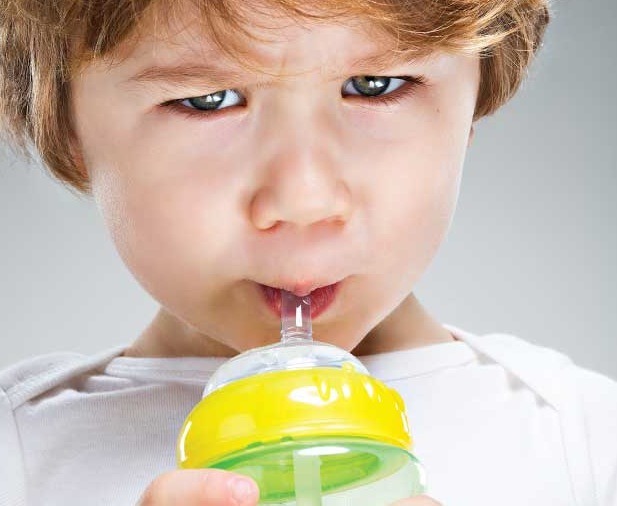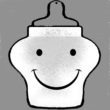In July 2013, a jury in federal court in Austin ruled that PlastiPure and CertiChem—two small, private labs founded by a University of Texas professor—had made false and misleading statements about plastic bottles, and about Tritan, a trademarked resin used to make the bottles.
Tennessee-based Eastman Chemical had spent tens of millions of dollars creating Tritan, which it advertises as free from the problematic estrogenic activity, or EA, that is is found in plastic products made from bisphenol A (BPA).
Estrogenic activity is the ability of a chemical to mimic natural estrogen.
BPA, a synthetic product used to make plastic, has become its own toxic brand, because it is estrogenic active.
The federal appeals court in Texas hasn’t ruled yet, but PlastiPure has moved on. Articles on its website describe the testing of Tritan products. The conclusion? Tritan and products made from it cause estrogenic activity. Just like BPA.
If you have ever drunk from a clear plastic bottle or eaten food packaged in clear hard plastic, you have gotten a dose of estrogenic-active leachate from the BPA.
Which is not a good thing.
- In 2009 the U.S. National Toxicological Program warned that BPA could cause behavioral problems in infants and children.
- Scientific publications have linked low-dose exposure to BPA to increased rates of breast and prostate cancer as well as brain and behavioral disorders.
- In 2009, Walmart pulled BPA baby bottles and sippy cups from its shelves.
Eastman’s “non-BPA” substitute Tritan, today widely used in “BPA-free” plastic containers , is growing source of income for the company.
Type BPA in a search engine, and the first ad you will see is:
BPA Alternative – Eastman.com
www.eastman.com/TritanSafe
Eastman Tritan™ copolyester is made in USA without bisphenol A.
Plastic bottles and containers made from Tritan are a safe alternative to plastics made with BPA.
Unless, like the BPA it replaces, Tritan has estrogenic activity.
That’s what CertiChem found.
According to court documents we reported on, Certichem tested three Tritan resins and 102 bottles and other containers made from Tritan and found they are estrogenic active.
When the Austin labs listed the results on their websites and in marketing brochures, Eastman sued. (One lab conducts tests while the other lab helps plastic companies make plastics that are free from estrogenic activity.)
The jury ruled against the two labs. CertiChem and PlastiPure are now permanently enjoined—essentially gagged by the judge’s ruling.
Before they can engage in any commercial speech about Tritan (on their website or in printed material), they have to ask permission from the judge in Austin.
The jury also ruled that estrogenic activity can only be proven in a lab test with live animals, although for more than 30 years, university and private labs have used tests like the one used by CertiChem to determine if a substance creates estrogenic activity.
Most of the tests use live cancerous human breast cells. If the tested substance causes the cells to proliferate, the substance has estrogenic activity.
The decision was appealed by CertiChem and PlastiPure, and Judge Jennifer Walker Elrod, one of the three members of the appeals panel, was troubled by a court silencing science.
“Going forward, for them to be able to publish anything, they have to be able to convince the district court that it is somehow of a certain level of scientific persuasiveness scientifically…?” she asked Eastman’s attorney during oral arguments in September.
“It shows why we are particularly ill-suited as courts to deal with this,” the judge added.
“Because if [a scientific finding] is changing, something can be false one day and not false the next day and we are going enjoin somebody from talking about it until they can definitively prove it’s not false.”
The appeals court hasn’t ruled.
But CertiChem and PlastiPure have moved on.
On PlastiPure’s website, you will find a link—and a teaser that reads: “a peer-reviewed scientific paper reports that resins including Tritan™… release chemicals having estrogenic activity (EA).”
A click on the link leads to papers published by scientists, including CertiChem founder and co-owner George Bittner, who is also a professor of neuroscience at the University of Texas at Austin.
The articles describe the testing of Tritan products and cover much of what was argued in court in Austin.
The conclusion?
Tritan and products made from it cause estrogenic activity:
“The results presented above indicated that three unstressed and stressed Tritan™ resins released chemicals with EA.
Our data demonstrating that unstressed Tritan™ leaches chemicals with EA are consistent with the more-limited set of previous data showing that four water bottles and a baby bottle made from Tritan™ resins release chemicals having EA, especially when stressed with UVC radiation.”
I called and emailed Eastman and got no response regarding the postings or claim about the Eastman product.
Bittner did respond.
“Everything that is posted on our website is based on, and quotes from, the articles that we published in peer-reviewed journals,” he said in a phone interview.
—Lou Dubose
December 2, 2014
Lou Dubose is the editor of The Washington Spectator.





I found this abstract of a paper in Food Chemistry published last November: https://www.sciencedirect.com/science/article/pii/S0308814613003038
Eastman has something to hide?